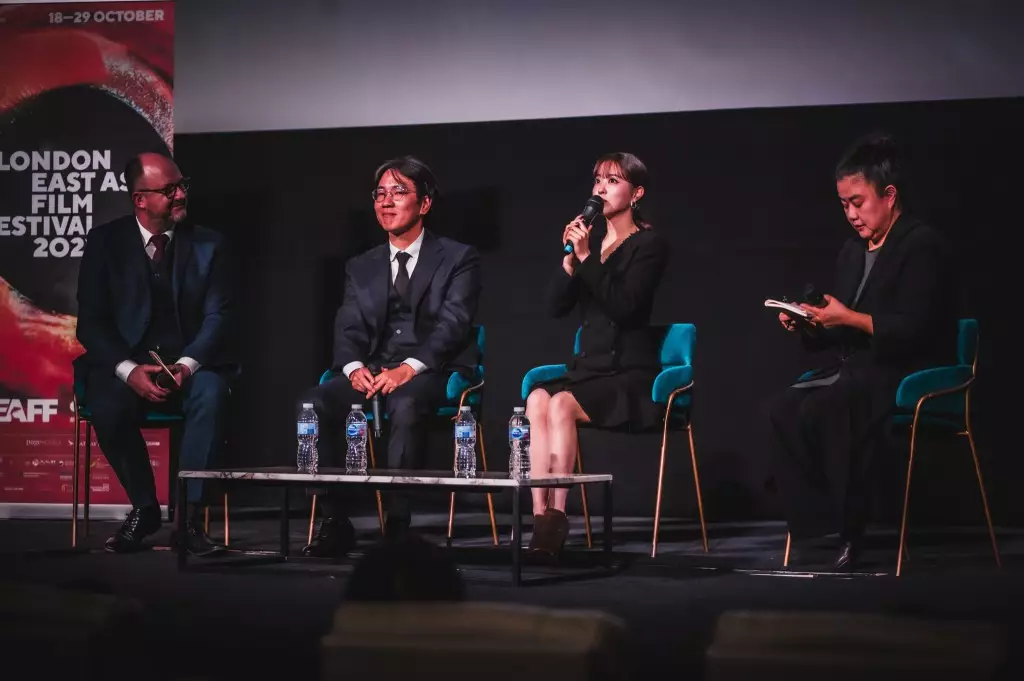The London East Asia Film festival recently came to a close with the UK premiere of “Concrete Utopia.” Directed by Um Tae-hwa, the film is Korea’s entry for the Best International Feature Film category at the 2024 Oscars. The festival awarded the Best Film award to “Iron Mask” by Kim Sung Hwan, while “Concrete Utopia” received the Rising Star award for actress Park Bo-young.
Um’s film presents a dystopian fable set in South Korea. It follows the story of a young couple, Ming-seong (played by Park Seo-joon) and (Park Bo-young), who wake up to a world completely transformed after a devastating earthquake. The film’s protagonist, played by Lee Byung-hun, portrays a charismatic leader who steals the show.
In a Q&A session with the director, Park Bo-young discussed the film’s themes of survival. Given recent events in Ukraine and Israel/Gaza, the film’s portrayal of extreme circumstances suddenly became shockingly relevant. Director Um explained that he aimed to explore what people do when faced with such extreme situations. He focused on the characters and their backstories, gradually revealing information to maintain the flow of the story.
Rather than focusing on gratuitous carnage, Um delves into the hierarchies of society. The film depicts how quickly neighbors can turn on each other in times of stress. Residents of the high-rise where the story takes place start rejecting anyone seeking shelter, leading them to a tragic fate. Um explained that he wanted to show how one’s social rank, determined by their living conditions, can significantly impact their identity in Korea. He believes that similar social hierarchies exist worldwide but are particularly strong in Korea.
Park Bo-young, discussing her character’s journey, highlighted how she grows from a passive individual to someone more active as a result of witnessing her husband’s transformation. The apocalyptic event changes her kind and humble husband in ways she cannot recognize. Um emphasized that no character in the film is purely good or evil. He wanted the audience to identify with each character and understand the choices they make. This relatability contributes to the film’s eerie atmosphere, forcing viewers to question whether these ordinary people’s choices to protect themselves are morally right.
A Departure from Disaster Films
Director Um noted that while some may categorize the film as a disaster movie, he considers it an apocalyptic film with a deeper meaning. The disaster itself is not the central focus; rather, Um aimed to explore the human response to extreme circumstances. Instead of bombarding the audience with constant action and destruction, Um prioritizes character development and social dynamics within the high-rise.
“Concrete Utopia” offers a thought-provoking exploration of survival, social hierarchies, and the choices individuals make when facing extreme circumstances. The film’s UK premiere at The London East Asia Film Festival provided audiences with an opportunity to appreciate Korean cinema and its ability to captivate viewers with unique narratives. With its dystopian fable and compelling characters, “Concrete Utopia” stands as a testament to the talent and creativity of the Korean film industry.

